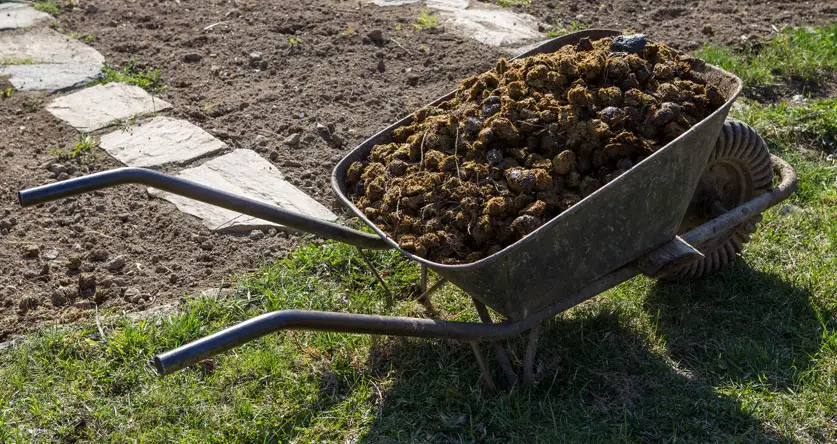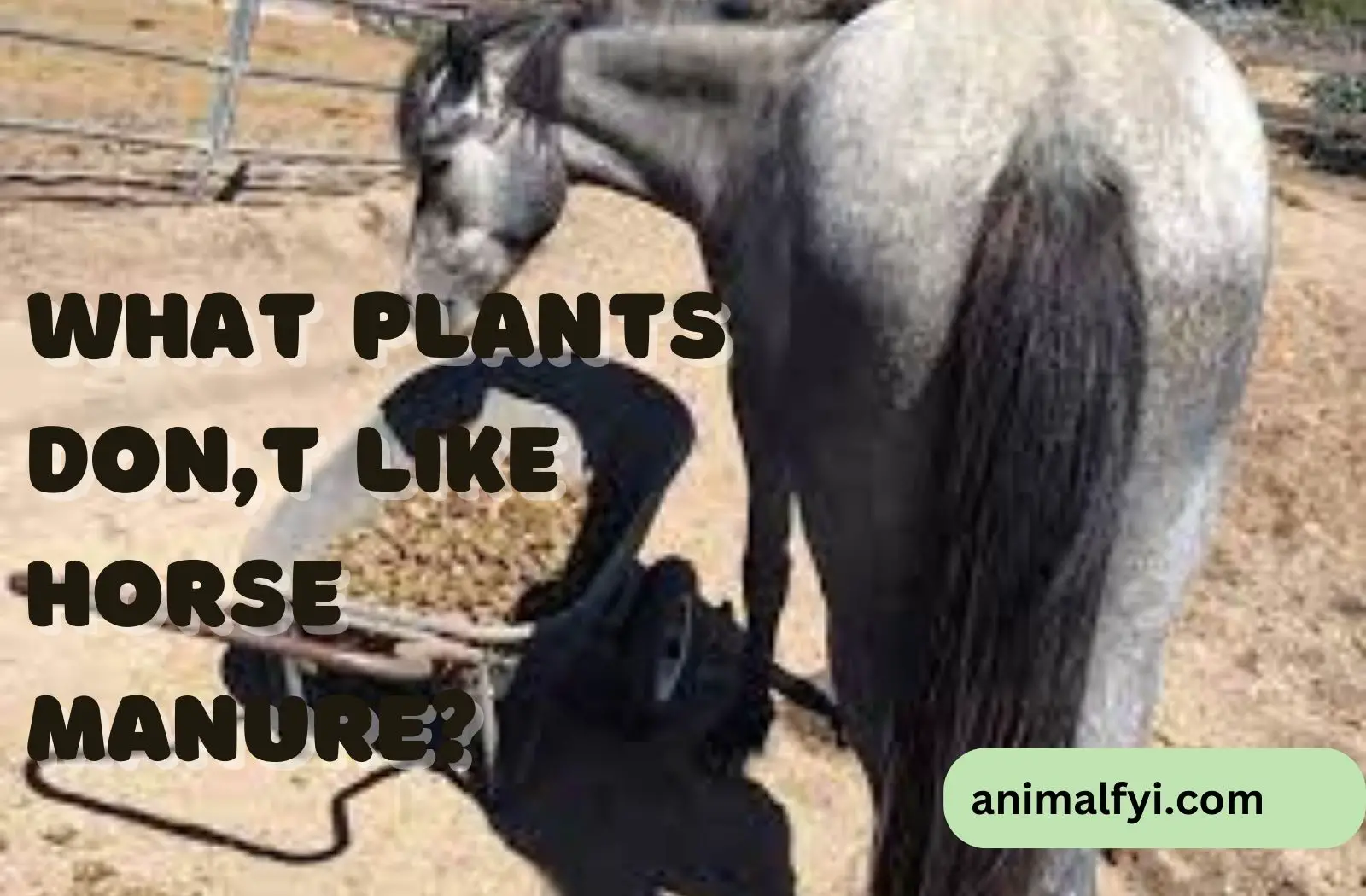If you’re an avid gardener, you know the importance of choosing the right fertilizer for your plants. Horse manure is commonly used in gardens due to its nutrient-rich composition. However, not all plants thrive with horse manure. Understanding which plants don’t like horse manure is crucial to ensure optimal growth and prevent potential damage. In this comprehensive guide, we’ll explore the sensitivity of different plants to horse manure and provide alternatives for sensitive species. Whether you’re growing tomatoes, cucumbers, peppers, or root vegetables, this guide will help you make informed decisions about fertilizing your garden.
Understanding Horse Manure as a Fertilizer
Horse manure is a popular choice for gardeners because of its high organic matter content and essential nutrients. It is rich in nitrogen, phosphorus, and potassium, which are vital for plant growth. When used correctly, horse manure can enhance soil fertility, improve moisture retention, and promote overall plant health. However, it’s important to note that horse manure is not suitable for all plants due to its characteristics.
Plants That Don’t Thrive with Horse Manure
Sensitivity to High Nitrogen Levels: Certain plants, such as tomatoes, cucumbers, and peppers, are highly sensitive to excessive nitrogen levels. Too much nitrogen can lead to excessive foliage growth at the expense of fruit production. Signs of nitrogen toxicity include dark green leaves, delayed fruit development, and increased susceptibility to pests and diseases. If you’re growing these crops, it’s best to avoid using horse manure or use it sparingly.
- Intolerance to Excessive Salts and pH Imbalance: Some plants are more susceptible to high salt content, which can be present in horse manure. Salts can disrupt the water balance in plants and hinder nutrient uptake, leading to stunted growth and leaf burn. Additionally, horse manure can alter the pH of the soil, making it unsuitable for plants that prefer acidic or alkaline conditions. For example, acid-loving plants like blueberries and azaleas may not thrive with horse manure.
- Specific Plants That Generally Don’t Like Horse Manure: Apart from tomatoes, cucumbers, and peppers, several other plants may not favor horse manure. Common ornamental flowers like petunias, impatiens, and begonias prefer well-balanced soils and can be negatively affected by excessive nutrients. Additionally, root vegetables such as carrots and potatoes tend to develop misshapen or forked roots when grown in soil enriched with horse manure.
Alternative Fertilizers for Sensitive Plants
Fortunately, there are various alternative fertilizers that can be used for sensitive plants. Organic options include composted cow manure, compost made from kitchen scraps, or commercially available organic fertilizers. These alternatives provide a milder nutrient release, reducing the risk of overfeeding sensitive plants. Synthetic fertilizers formulated specifically for certain plants or plant groups can also be an option.
When using alternative fertilizers, it’s important to follow package instructions and apply them at the recommended rates. Additionally, consider the specific nutrient requirements of your plants and adjust the fertilization accordingly. Regular soil testing can help you monitor the nutrient levels and ensure the optimal balance for your plants’ growth.
Precautions and Considerations
To minimize the risks associated with horse manure, gardeners can take a few precautions. Proper composting of horse manure is essential to reduce potential pathogens and weed seeds. Composting breaks down the manure and allows it to mature, making it safer and more beneficial for plants.
Before applying horse manure, it’s advisable to test the soil to assess its nutrient composition and pH levels. This will help you determine the exact requirements of your garden and whether horse manure is a suitable choice.
What not to put horse manure on?
When it comes to fertilizing your garden with horse manure, there are certain plants and areas where caution should be exercised. Here are a few examples of what not to put horse manure on:
- Acid-Loving Plants: Acid-loving plants such as blueberries, azaleas, and rhododendrons prefer acidic soil conditions. Horse manure can increase the pH level of the soil, making it less suitable for these plants. It’s best to avoid using horse manure on these acid-loving species.
- Ornamental Flowers: Some ornamental flowers, such as petunias, impatiens, and begonias, thrive in well-balanced soils. Horse manure, which is high in nutrients and nitrogen, can lead to excessive foliage growth at the expense of flower production. These flowers may not perform well when exposed to high levels of nutrients found in horse manure.
- Root Vegetables: Root vegetables like carrots and potatoes can be negatively impacted by horse manure. Excessive nutrients, particularly nitrogen, can cause misshapen or forked roots. If you’re growing root vegetables, it’s best to use alternative fertilizers that provide a more balanced nutrient release.
What plants grow well in horse manure?
While horse manure may not be suitable for all plants, there are certain species that can benefit from its nutrient-rich properties. Here are some plants that typically grow well in horse manure:
- Leafy Greens: Plants like lettuce, spinach, kale, and Swiss chard thrive with the addition of horse manure. These leafy greens require nitrogen for healthy foliage development, making horse manure a suitable fertilizer choice.
- Fruit Trees and Shrubs: Many fruit-bearing trees and shrubs, such as apple, pear, plum, and berry bushes, can benefit from the nutrients provided by horse manure. However, it’s important to apply the manure in moderation to prevent excessive growth and to maintain a balance between foliage and fruit production.
- Nitrogen-Loving Crops: Certain crops that have a high demand for nitrogen, like corn and leafy herbs such as basil and parsley, can benefit from the nitrogen content in horse manure. However, it’s crucial to apply horse manure in a composted or aged form to avoid burning the plants with excessive nitrogen levels.
Why is horse manure not good for plants?

While horse manure offers many benefits as a fertilizer, it may not be suitable for all plants due to the following reasons:
- High Nitrogen Levels: Horse manure is often high in nitrogen, which can be beneficial for certain plants. However, excessive nitrogen levels can cause problems, leading to excessive foliage growth at the expense of fruit or flower production. Some plants, such as tomatoes, cucumbers, and peppers, may suffer from nitrogen toxicity when exposed to horse manure.
- Salt Content and pH Imbalance: Horse manure can contain salts that, when present in high concentrations, can be detrimental to plants. Salts can disrupt the water balance and hinder nutrient uptake, resulting in stunted growth and leaf burn. Additionally, horse manure can alter the pH of the soil, making it unsuitable for plants that require acidic or alkaline conditions.
- Nutrient Imbalance: While horse manure is rich in organic matter and nutrients, the ratio of nutrients may not be ideal for all plants. Some plants may require a more balanced nutrient profile or specific nutrient ratios for optimal growth and development. Applying horse manure without considering the specific needs of plants can lead to nutrient imbalances and hinder their overall health.
What plants do not like fertilizer?
While plants generally benefit from appropriate fertilization, some species are less tolerant of excessive nutrients or are adapted to thrive in nutrient-poor environments. Here are a few examples of plants that do not typically require or prefer heavy fertilization:
- Native and Wildflowers: Native and wildflower species are often adapted to grow in nutrient-poor soils. These plants have evolved to thrive in specific conditions, and excessive fertilization can disrupt their natural growth patterns.
- Succulents and Cacti: Succulents and cacti are adapted to survive in arid environments with low nutrient availability. These plants have unique mechanisms to store water and nutrients, and excessive fertilization can lead to overgrowth, weak stems, and root rot.
- Established Perennials: Well-established perennial plants, particularly those that have been growing for many years, often have established root systems and may not require heavy fertilization. These plants have adapted to their growing conditions over time and can extract nutrients efficiently from the soil.
It’s important to research the specific requirements of each plant species and tailor the fertilization approach accordingly. Providing appropriate amounts of fertilizer based on individual plant needs can help maintain their health and prevent potential damage caused by excessive nutrient application.
Conclusion
In conclusion, understanding which plants don’t like horse manure is crucial for successful gardening. While horse manure offers numerous benefits, it may not be suitable for all plants, particularly those sensitive to high nitrogen levels, salts, and pH imbalances. Tomatoes, cucumbers, peppers, and root vegetables are among the plants that generally don’t thrive with horse manure.
For sensitive plants, there are alternative fertilizers available, both organic and synthetic, that provide balanced nutrition without the risk of overfeeding. By considering the specific needs of your plants and choosing the right fertilizers, you can ensure healthy growth and abundant harvests in your garden. Remember to compost horse manure properly and perform soil testing for optimal results. Happy gardening!

